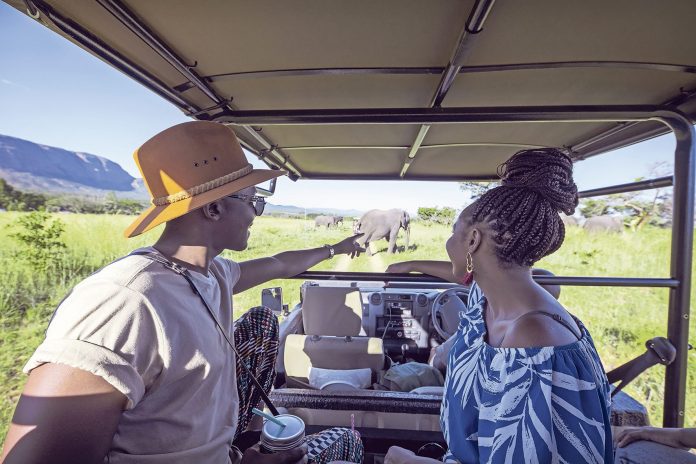Johannesburg – Inclusive growth entails bringing in youth and women on board. It also entails contributing to both township and rural economies.
Tourism, a strategic pillar of South Africa’s economy, has the potential to address the triple challenges of unemployment, poverty and inequality through job creation.
Apart from generating revenue, tourism provides the economic opportunities for women and youth, supports the development of SMMEs (small, medium and micro enterprises) and has the potential to foster social cohesion.
It also has multiple linkages with other sectors of the economy and generates significant multiplier effects.
To this end, the department has embarked on numerous projects to ensure the participation of youth and women in the sector. One such programme is the Hospitality Youth Training (Food and Beverages).
These programmes are for South African citizens with a grade 12 certificate and must have a passion for the tourism and hospitality industry.
Training is structured for 30% theory and 70% practicals at relevant hospitality establishments.

WOMEN IN TOURISM (WiT)
The WiT platform is meant to integrate women from different backgrounds within the sector and to ensure that they converge on a set of common goals and interests within the industry.
The WiT initiative serves as a mechanism to drive programmes to support the development and empowerment of women in the tourism sector, as well as provide networking opportunities.
The objectives of the programme are:
• To ensure that women, who constitute the majority in the sector, are respected, recognised, represented, and rewarded.
• To drive transformation in the tourism and hospitality sector aligned to the targets set out in the B-BBEE Tourism Sector Code.
• To mobilise and create platforms to network, expand business and professional horizons.
• To facilitate access to business resources, information and opportunities for women entrepreneurs in tourism and hospitality sector.
• To identify mechanisms that need to be put in place in order to provide a national vehicle to address the barriers faced by women in tourism and hospitality sector.
• To align with similar organisations to better leverage opportunities.
• To profile, recognise, affirm and create platforms to celebrate women achievers in the sector.
• To highlight problems faced by women in tourism and hospitality sector.
• To lobby for government and other stakeholders on barriers for the advancement of women in the sector.
• To provide leadership and role models for young women endeavouring to enter the tourism and hospitality sectors.
• To find solutions to the social challenges through providing a platform for dialogue and sharing, as well as adding their voice in calling for non-sexist.
South Africa was recently nominated to serve on the executive council of the United Nations World Tourism Organisation (UNWTO).
The UNWTO is the UN agency responsible for the promotion of responsible, sustainable and universally accessible tourism. As the leading international organisation in the field of tourism, UNWTO promotes tourism as a driver of economic growth, inclusive development and environmental sustainability and offers leadership and support to the sector in advancing knowledge and tourism policies worldwide.
South Africa’s nomination will be approved by the 24th Session of the UNWTO General Assembly to be held in Marrakesh, Morocco on November 30 to December 3.
“Our membership on the executive council will assist to reposition Africa, establish our continent as a destination of choice, and highlight our tourism offerings to travellers. It will be a great honour for us to serve Africa in this way, advancing Brand Africa and unlocking growth for the continent. Through this, we will intensify our cooperation and contribute to the global tourism sector,” says Victor Tharage, the director-general of the Department of Tourism.
UNWTO WOMEN IN TOURISM EMPOWERMENT PROGRAMME (WiTEP)
The WiTEP sets a precedent for establishing tourism as a tool for the promotion of gender equality and women’s empowerment using gender analysis and gender training to tackle inequality and gender-based discrimination in the tourism industry.
UNWTO WOMEN IN TOURISM PILOT PROJECT (LIMPOPO)
Limpopo was chosen since it is one of the poorest provinces representing vast landscapes rich with a diverse wildlife and cultural attractions. This makes the province a popular tourist destination.
The objectives of the pilot programme include the following:
• Promote and empower female entrepreneurs.
• Increase employment opportunities.
• Stimulate advancement/promotions for female employees.
• Improve leadership and decision-making across all levels.
• Increase awareness among community and civil society regarding the benefits of tourism and the importance of gender equality; and
• Promote a culture of female leadership within the tourism industry.
The department decided upon a two-phased approach to implement the pilot programme.
The implementation of the programme focuses on addressing four key areas:
1. Leadership and skills development
2. Supplier development
3. Market access and
4. SMME development and mentorship



